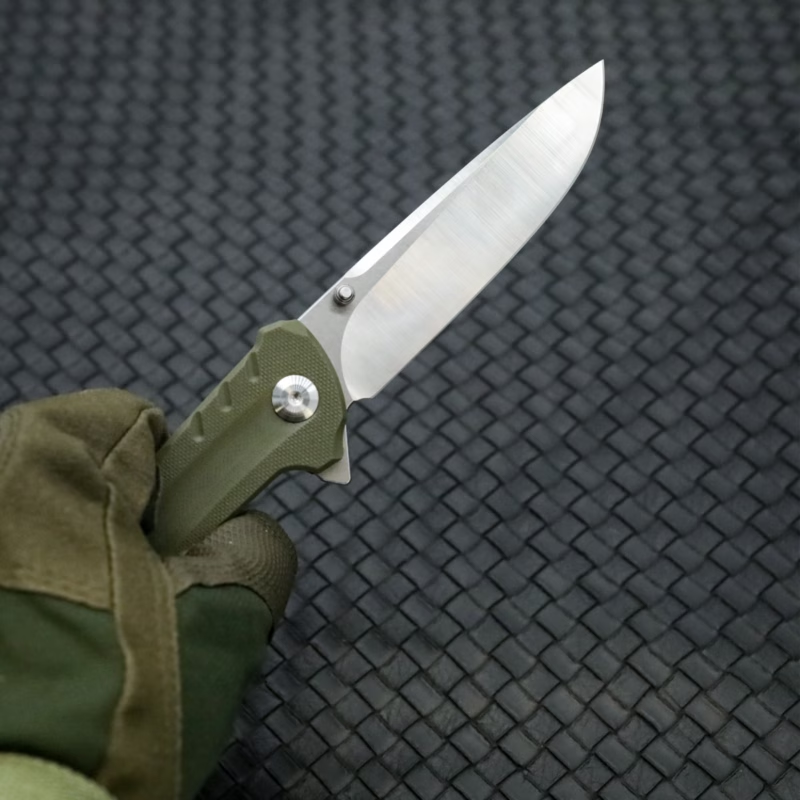Michigan Knife Laws: What You Need to Know for 2025

Introduction
When it comes to carrying knives in Michigan, understanding the local laws is essential for ensuring you’re in compliance and avoiding legal trouble. Michigan has specific regulations about the ownership, possession, and carrying of knives, which may vary by type, intent, and location. Whether you’re a collector, outdoor enthusiast, or someone who simply carries a pocket knife for everyday use, this guide will help clarify Michigan knife laws.
Expertise in Michigan Knife Laws
Michigan’s knife laws are primarily governed by the Michigan Penal Code, but various local ordinances can add complexity. In this article, we will explain the different types of knives, the legalities around carrying them, and any special provisions for specific areas within Michigan.
Table of Contents
What Types of Knives Are Legal to Own in Michigan?
In Michigan, most types of knives are legal to own, including:
- Pocket Knives: These are small, foldable knives that can be carried easily in your pocket. They are widely used for everyday tasks and are legal in Michigan without restriction.
- Switchblades and Automatic Knives: Since 2017, the ban on switchblades and automatic knives has been lifted in Michigan. These knives are now legal to own, though carrying them concealed is still regulated.
- Balisong (Butterfly) Knives: These folding knives are legal to possess in Michigan but require special attention when it comes to carrying.
- Dirks, Daggers, and Stilettos: These are often associated with stabbing weapons and have legal considerations, especially regarding concealed carry.
- Throwing Knives and Swords: These knives are legal to own, though using them in certain public areas may lead to legal issues depending on local ordinances.

Is It Legal to Carry a Knife in Michigan?
Yes, it is legal to carry knives in Michigan; however, there are important regulations to follow regarding open and concealed carry.
Open Carry
Openly carrying a knife in Michigan is allowed without a permit. This means you can carry a knife in a visible location (such as on your belt or in your hand) as long as your intent is lawful.
Concealed Carry
Concealed carry laws for knives in Michigan are stricter. While you are allowed to carry most knives in public, it is illegal to conceal carry specific knives like:
- Double-edged knives: Examples include daggers, dirks, and stilettos, which are considered dangerous and can only be carried openly or in a concealed manner within your own home or property.
- Any knife with the intent to use it as a weapon: Michigan law prohibits carrying knives with the intention to use them for illegal activities, such as committing crimes or threatening others.
Are There Blade Length Restrictions in Michigan?
While Michigan state law doesn’t impose blade length restrictions, some cities, such as Detroit and Lansing, have local ordinances that limit the size of knives you can carry. For example:
- Detroit and Lansing: Carrying knives with blades longer than 3 inches in public is illegal in these cities. This is an important consideration if you plan on traveling or passing through these areas.
Carrying Knives on School Grounds
Michigan law prohibits carrying knives on school grounds, whether in your possession or in your vehicle. This applies to public and private schools, and violating this law can result in serious consequences. Schools are considered weapon-free zones, and even small knives can lead to charges of possession of a weapon on school property.
What About Transporting Knives in Vehicles?
If you’re transporting a knife in your vehicle, you must be careful. Michigan law does not allow the concealed carry of certain knives in vehicles unless they are for legitimate purposes (e.g., hunting knives for outdoor activities). Double-edged, stabbing-type knives should not be concealed in vehicles unless you can show that the knife is being transported for lawful reasons, such as traveling to a hunting trip.
Local Ordinances You Should Know About
Local ordinances may impose additional restrictions on knives, so always check the specific laws in your city or county. For example:
- Detroit: In addition to blade length restrictions, Detroit also has regulations about switchblades and certain types of knives. Open carry is allowed in many cases, but concealed carry laws are strict.
- Lansing: Like Detroit, Lansing enforces blade length restrictions and has local rules about carrying dangerous knives.
It’s essential to familiarize yourself with the specific ordinances in your locality to avoid running afoul of the law.
Key Takeaways
- Legal Knives to Own: Pocket knives, switchblades, throwing knives, and swords are legal to own in Michigan, though some require specific handling.
- Carrying Restrictions: Open carry is generally allowed, but concealed carry of certain knives like daggers and dirks is prohibited in public.
- Local Laws Matter: Check your local area for specific blade length restrictions and other knife-related ordinances.
- Schools and Vehicles: Knives are prohibited in schools, and transporting knives in vehicles must comply with Michigan’s concealed carry regulations.
Conclusion
Michigan knife laws are relatively straightforward, but there are important nuances regarding carrying and possession. By understanding the rules for open and concealed carry, blade length restrictions, and local ordinances, you can ensure you’re abiding by the law. Always carry knives with a lawful intent and be aware of your surroundings to avoid legal issues.
For anyone carrying a knife in Michigan, we recommend staying up to date with any changes in the law or seeking legal counsel for more detailed guidance.




